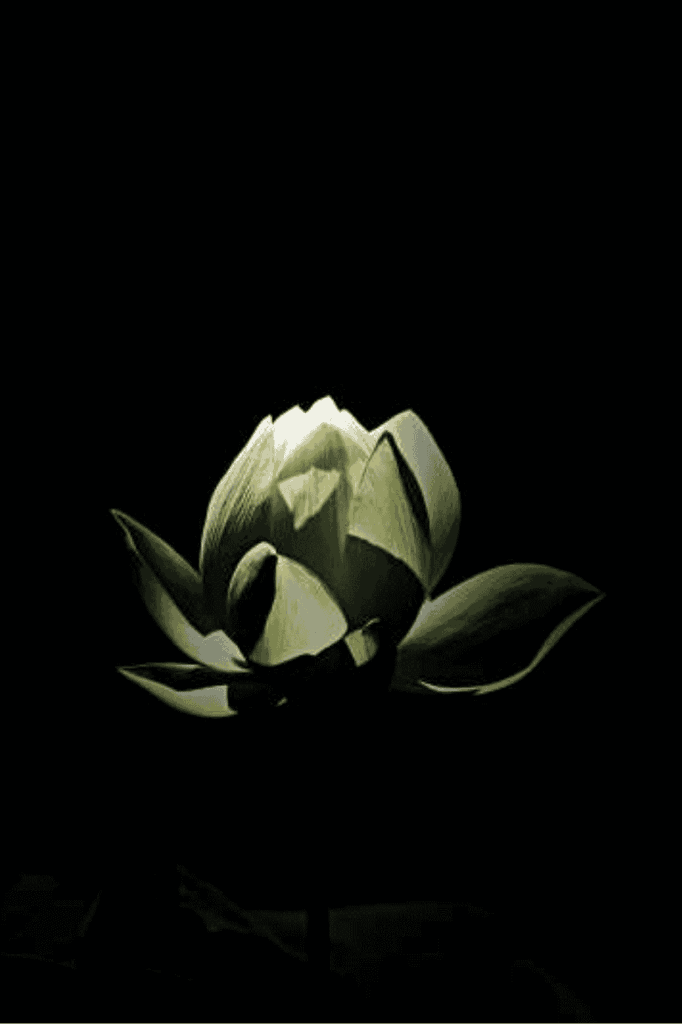Rahu and Ketu: Unveiling the Mysteries of the Shadow Planets
-

In Vedic astrology, Rahu and Ketu are referred to as shadow planets or mathematical points in the birth chart, symbolizing the lunar nodes. Rahu represents the North lunar node, while Ketu signifies the South lunar node. Their influence is notably potent when they interact with the luminaries Sun and Moon. Rahu embodies worldly desires, ambitions, and material pursuits, while Ketu symbolizes spirituality, detachment, and liberation from worldly attachments. Together, they form a dynamic axis guiding individuals towards self-discovery and inner transformation through karmic paths and life lessons.
Shadow planets
Rahu and Ketu, as nodes of the Moon, exert a profound influence on our ego and mind. Referred to as the “shadow planets,” they represent our shadow selves, containing the essence of what is hidden even from our conscious awareness. These nodes symbolize karmic challenges and lessons that we are destined to confront and master throughout our lives. Their impact on our psyche is significant, as they bring to light subconscious patterns, past-life karma, and unresolved issues that shape our behavior and experiences. Working with the energies of Rahu and Ketu involves embracing both the light and shadow aspects of our being, allowing us to navigate our karmic journey with awareness, gratitude, and self-discovery. Through introspection and spiritual growth, we can learn the transformative power of these shadow planets to transcend limitations and fulfill our soul’s purpose.
By shedding light on subconscious patterns and past-life karma, they illuminate pathways for spiritual growth and personal development.
Misconceptions of Rahu and Ketu
It’s crucial to dispel the misconception of categorizing them as purely good or bad, as they encompass both polarities, interplaying continuously in our lives.
Black-and-white thinking as to whether one is “good”, and the other is “bad” leads to serious misunderstandings of the nodes.
Why?
- They are both – both “good and bad”.
- They are one – a head and a tail, a lock, and a key.
- If the point in your chart is aspected by one, it’s automatically aspected with the other – as they are always 180° apart.
Therefore, the interplay between them is continuous and so is the task of understanding these energies and karmas they bring.
Astrologically speaking they gain prominence if they are aspecting or touching the focal points of the birth chart: primarily Sun, Moon, Ascendant, Ascendant ruler.
Secondarily, the nature of the planet they are conjoining and the house and nakshatra they are placed in will determine the traits and events they bring.
-

Rahu and Ketu Mahadasha
Rahu Mahadasha and Ketu Mahadasha periods are time frames when they become especially active.
As we live in Kalyuga and our overly rajasic state is inclined towards material success, material gains, and externally defined success Rahu and Ketu bring quite a provocation for individuals.
What they inherently bring is a transformation and change.
Whether the change is for better or for worse is determined by the placement, the other planets and the role they play in the chart.
Although they don’t directly rule any house, as they are not considered planets, they are co-rulers of Aquarius (Rahu co-rules with Saturn) and Scorpio (co-rules with Mars).
Remember they are one. A head and a tail. They are equally strong, equally influential, equally powerful, and equally transformative.
- Rahu – materialistic, obsessive, illusional tendencies, never satisfied, attention seeking, spotlight driven, ego-boosting, non-conforming, notorious, unusual, eccentric, erratic, multiple personality traits (if the person is born under strong eclipse).
- Ketu– withdrawn, spiritual, inward-looking, detached, disinterested, invisible, hidden, intuitive, distant, hard to read, a poker face, an expert, gets the spotlight even though it doesn’t desire it, a flag, a mark.
Why do some people experience difficult periods and some experience the time of their lives during Rahu and Ketu Mahadasha?
As an example, most people fear Ketu Mahadasha. Is this fear justified?
If our lives are completely immersed in materialistic pursuits and there are no practices, or any spiritual growth, inner work, and metaphysical interests, Ketu Mahadasha can be a rough experience. It will forcefully bring change to start inner work and mindset shift.
If you place your happiness externally from you and that externality is purely material (temporary) – what happens when it goes away? You feel lost, without resources, without means, and confused.
Rahu’s Significance in Each House of the Natal Chart
- Rahu in the 1st House: Rahu in the first house brings a worldly nature, making the native like being in the spotlight. This placement often produces politicians or public figures. However, it can create challenges in marriage and marital happiness. If poorly placed addictions are evident.
- Rahu in the 2nd House: Rahu here bestows wealth, usually after the age of 36. This placement can lead to conflicts with family members, especially for Cancer Ascendants. Natives might move out early.
- Rahu in the 3rd House: This is a favorable position for Rahu, as it thrives in the realm of media. It supports success in technical fields, good education, and business wealth. The native is clever , but can be deceptive, often excelling in areas where cunning is advantageous.
- Rahu in the 4th House: This placement can disrupt home peace, leading to a more social and outgoing lifestyle. Despite a desire for a peaceful home, this is often achieved only after the age of 43, after Rahu matures. Specific circumstances or relationship with mother affect the native.
- Rahu in the 5th House: Rahu in the fifth house encourages creativity and wealth through investments. The children or the desire to have many children are significant. They can also affect the native’s education.
- Rahu in the 6th House: This is one of the best positions for Rahu, offering victory over enemies, wealth through litigation, and success in law-related fields.
- Rahu in the 7th House: While challenging for marital stability, this position is advantageous for business and gains through partners.
- Rahu in the 8th House: This placement can lead to health issues, accidents, and sudden life changes. However, it also produces doctors, surgeons, and researchers in the medical field.
- Rahu in the 9th House: Rahu here conflicts with the traditional values of law, religion, and culture. It can make a native initially religious, only to later abandon those beliefs, or be skeptical of religion from the start.
- Rahu in the 10th House: This is the most favorable placement for Rahu, granting worldly fame, strong willpower, and significant career wealth. However, it can make the native a workaholic. If Rahu is under malefic influence here, it may attract unwelcome public attention.
- Rahu in the 11th House: This placement brings immense wealth, especially during its Dasha, often telling a rags-to-riches story.
- Rahu in the 12th House: This can bring mental unrest, exposure to spiritual or supernatural phenomena, and legal troubles. It favors relocation to foreign lands and with good planetary influences successful research and investigative work.
-
Ketu’s Significance in Each House of the Natal Chart
- Ketu in the 1st House: Ketu in the 1st house often indicates a person with a strong spiritual inclination and a deep inner life. They may struggle with self-identity and have a tendency to feel detached. This placement can lead to a lack of interest in material pursuits, solitary nature and a focus on spiritual or introspective activities.
- Ketu in the 2nd House: In the 2nd house, Ketu can signify a disinterest in accumulating wealth or material possessions. These individuals might have unconventional views about money and resources. There can be a sense of detachment and physical separation from family, as well as financial instability.
- Ketu in the 3rd House: Ketu in the 3rd house suggests a person who might struggle with communication. There can be a sense of detachment from siblings or a feeling of being misunderstood in their immediate environment. These individuals may have a unique way of expressing themselves. With good influences it can be good placement for writing or investigative journalism.
- Ketu in the 4th House: When Ketu is in the 4th house, there is often a sense of detachment from home and family. These individuals might feel disconnected from their roots or experience a nomadic lifestyle. They are likely to seek inner peace and spiritual solace rather than traditional domestic comforts.
- Ketu in the 5th House: Ketu in the 5th house can indicate a detachment from pleasures, romance, and creative pursuits. These individuals may have unconventional or non-traditional approaches to children and education. There can be a strong inclination towards spiritual practices and studies.
- Ketu in the 6th House: With Ketu in the 6th house, there is often a sense of detachment from daily routines, health issues, and conflicts in the work environment. These individuals might have an unconventional approach to health and healing, possibly embracing holistic or alternative medicine. They may struggle with a structured work environment.
- Ketu in the 7th House: Ketu here suggests a person who may feel detached from partnerships and relationships. There can be challenges in forming deep, committed connections, and these individuals might have an unconventional view of marriage. They often seek spiritual or philosophical companionship.
- Ketu in the 8th House: In the 8th house, Ketu signifies a deep interest in the occult, mysteries, and transformative experiences. These individuals might experience significant transformations and have a detached approach to matters of life and death. They often have an intense inner life and seek spiritual growth.
- Ketu in the 9th House: Ketu in the 9th house points to a strong inclination towards metaphysics, philosophy, and higher learning. There can be a detachment from father and traditional religious practices and an interest in unconventional belief systems. Travel and higher education may take on a more spiritual significance
- Ketu in the 10th House: With Ketu in the 10th house, there is often a sense of detachment from career ambitions and public life. These individuals might struggle to find satisfaction in conventional career paths and may pursue unique professions.
- Ketu in the 11th House: Ketu in the 11th house suggests a detachment from social networks, friendships, and large organizations. These individuals may have unconventional views about society and prefer solitude or small, spiritually aligned communities. They often seek deeper, more meaningful connections and prefer smaller groups with shared interests and ideas.
- Ketu in the 12th House: In the 12th house, Ketu signifies a strong connection to spirituality, isolation, and the subconscious mind. Individuals with this placement often experience profound insights and may be drawn to meditation, retreat, or humanitarian work.



